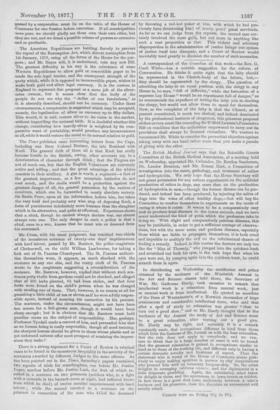The Times publishes same interesting letters from the Cape, 'including
one from Colonel Eustace, the late Resident with Kreli. The general drift of them all is that Kreli has really become hostile to the British, owing, other accounts say, to a deterioration of character through drink ; that the Fingoes are not of much use, but that the English Volunteers are extremely active and willing ; and that the great advantage of the whites consists in their artillery. A gun is worth a regiment—a fact of 'the greatest importance, as a few mountain batteries do not -cost much, and the shells would be a protection against the greatest danger of all, the general possession by the natives of revolvers, which can be forwarded in nearly absolute secrecy. Sir Bartle Frere, upon all the information before him, has taken the very bold and probably very wise step of deposing Krell, a form of punishment indefinitely more humane than the slaughter which is its alternative, and quite as effectual. Experience shows that a chief, though he cannot always declare war, can almost always veto one. The only danger in such a policy is that a chief, once in a war, knows that he must win or descend from his command.






































 Previous page
Previous page